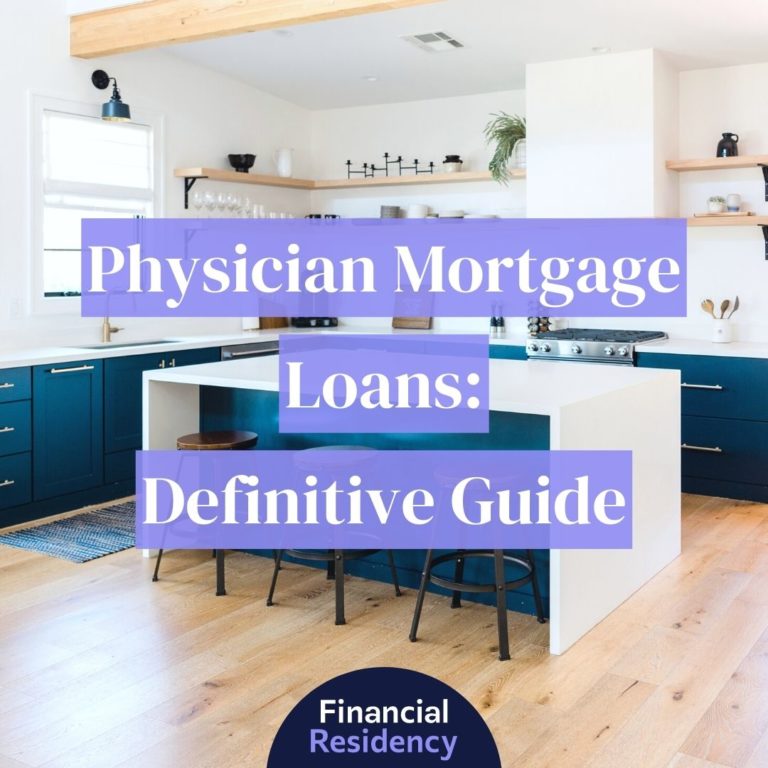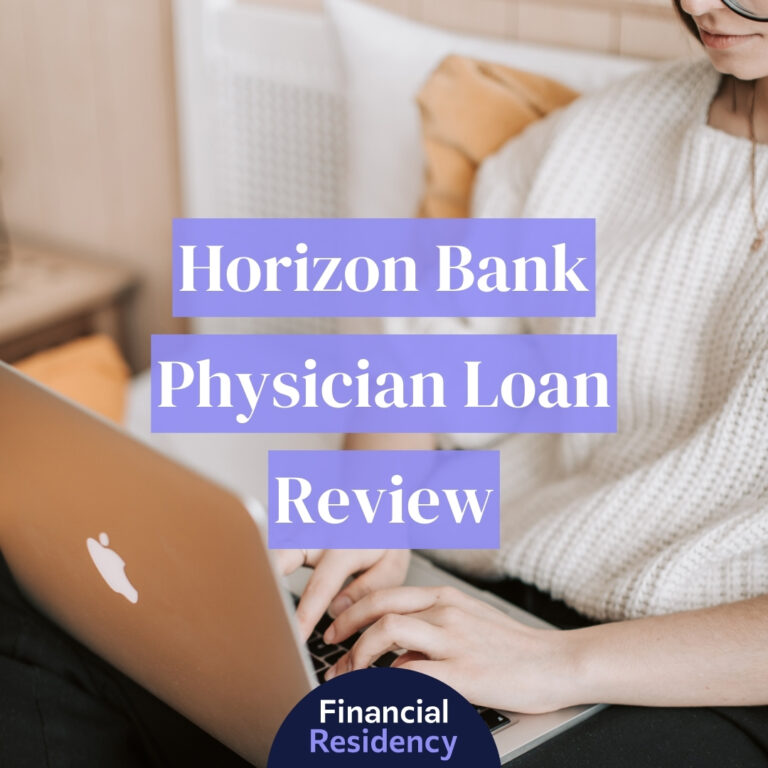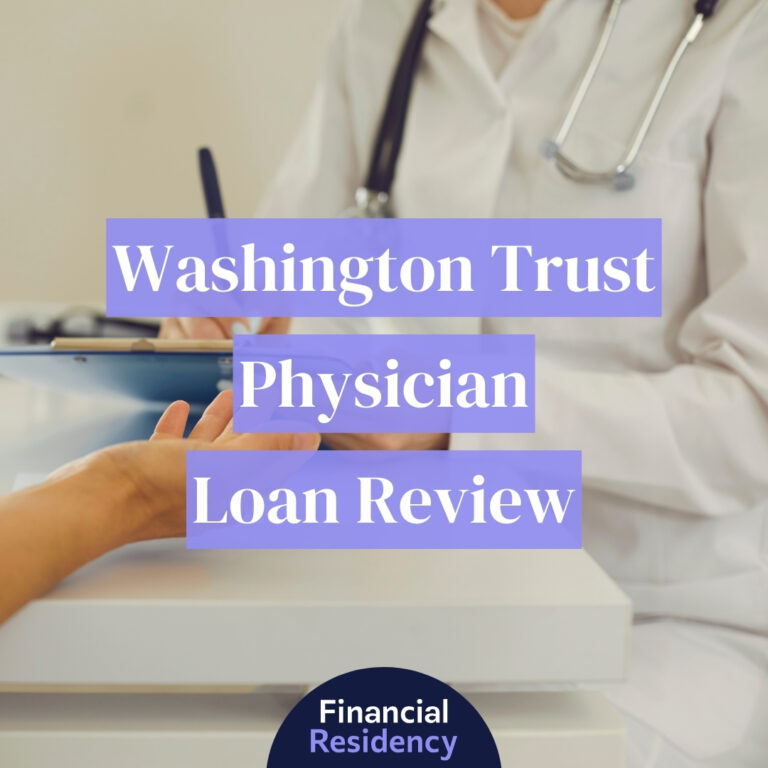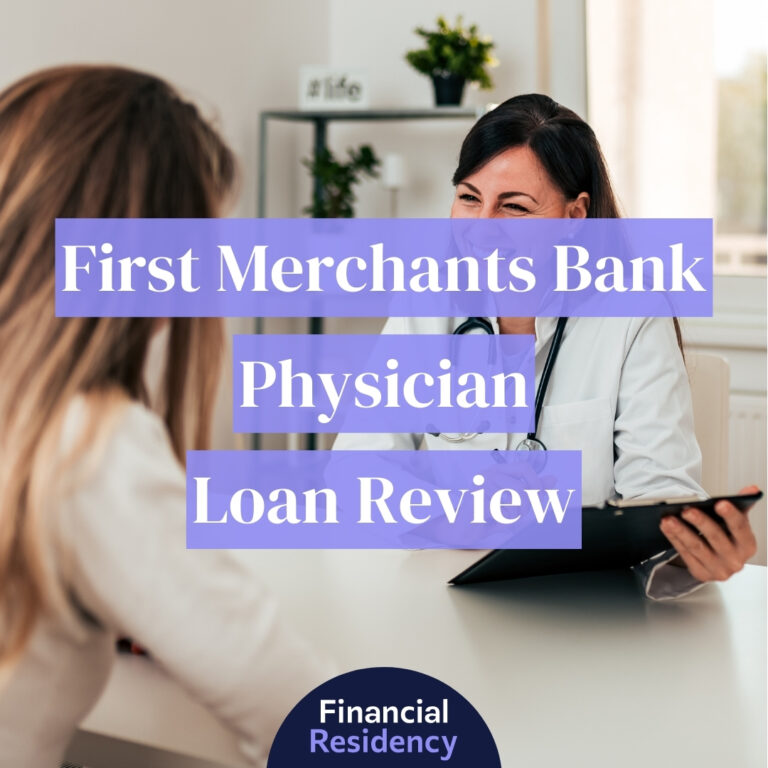Veterinarian mortgage loans aim to minimize barriers early-career medical professionals encounter on their paths to homeownership.
The median annual wage for veterinarians in the United States is in the low six figures, which still outpaces the wages of the average American, but significantly lags behind the salaries of other medical professionals.
With mounting student loan debt, it can be challenging for early-career veterinarians to move on with life after earning their degrees, especially if they’re one of many self-employed vets trying to operate a private practice.
As such, it can be incredibly difficult for veterinarians to set down permanent roots in the communities they practice, start families, and make worthwhile investments in the future.
What if you didn’t have to wait to pay off your student loans or increase your income to qualify for a home loan?
A veterinarian mortgage loan can help you keep up with the American dream of homeownership.
What Is a Veterinarian Mortgage Loan?
A veterinarian mortgage loan is another way to refer to a physician mortgage loan. Physician mortgage loans are home loans designed to help early-career medical professionals pursue homeownership.
While veterinarians are high-earning professionals, many are burdened with significant student loan debt and a lack of employment history––both of which can be barriers to purchasing a home.
- Lenient with DTI Ratio: Veterinarian mortgage loans will be more lenient on student loan debt than other mortgage programs. If you’ve deferred your loans for 12 or more months, they may exclude the loan amount entirely, but other borrowers can use their income-driven repayment amount.
- Lenient with Employment Status: Doctor loan programs also allow upcoming residents, fellows, interns, and early-career doctors to purchase a home up to 90 days before they start working with a valid employment contract.
- Low to No Down Payment: Physician mortgage loans allow veterinarians to purchase or refinance an owner-occupied primary residence with as little as 0–5% down.
- No PMI: While conventional mortgages will require private mortgage insurance (PMI) when you put a down payment of less than 20%, physician mortgage loans waive this, which can save you hundreds of dollars every month.
- Higher Loan Amounts: Veterinarian mortgages are also not beholden to the same loan as conforming loans. In many cases, physicians can borrow up to $1 million with a low down payment, but some loan programs will approve up to $3.5 million.
Physician loan programs are more lenient than many other loan programs in terms of the loan amount, employment history, and debt-to-income (DTI) calculations, but you’ll need a credit score of at least 700 to qualify for 100% financing.
By contrast, a conventional mortgage requires a credit score of at least 620, but you’ll have to put down at least 3%.
Veterinarian mortgage loans have dozens of benefits, but they are often only available for the purchase of a primary residence.
For this reason, they’re not a great option for physicians looking to build passive income through a rental or investment property.
7 Best Veterinarian Mortgage Lenders
Here are the top mortgage programs for veterinarians:
- Flagstar Bank
- Fifth Third Bank
- Evolve Bank & Trust
- The Federal Savings Bank
- Huntington Bank
- Frandsen Bank & Trust
- S&T Bank
Discover The Best Lenders Answer just a few questions about your career, where you're buying, and how much you want to borrow. Our service will then show you the exact programs you're eligible for from vetted physician loan specialists who will guide you through every step of the process – obligation-free!
1. Flagstar Bank
- BBB Grade: A-
- D. Power Score: 781
- State availability: AL, AZ, CA, CO, CT, FL, GA, ID, IL, IN, LA, MA, MI, NC, NJ, NM, NV, NY, OH, OR, RI, TX, UT, VA, WA, WI
Flagstar Bank’s Professional Loan program is one of the most inclusive doctor mortgages we’ve vetted. The following professionals are eligible for special financing through this program:
- ATP Pilot
- Attorney
- Certified Public Accountant (CPA)
- Clinical Nurse Specialist
- Doctor of Dental Medicine (DMD)
- Doctor of Dental Surgery (DDS)
- Doctor of Ophthalmology (MD)
- Doctor of Optometry (OD)
- Doctor of Osteopathy (DO)
- Doctor of Pharmacy (PharmD)
- Doctor of Podiatric Medicine (DPM)
- Medical Doctor (MD)
- Medical Resident (Educational License)
- Nurse Anesthetist (CRNA)
- Nurse Practitioner (NP)
- Physician Assistant (PA)
- Registered Nurse (RN)
- Veterinarian (DVM)
Flagstar Bank’s physician loan program is limited to professionals within the first 10 years of their careers.
Borrowers with a 720 credit score or higher can secure up to $1 million without a down payment or up to $1.5 million with a low down payment. Borrowers with a lower credit score aren’t disqualified but may need to put more money down.
PMI is not required and you can even accept interested party contributions if you don’t have sufficient savings for your down payment or closing costs.
While Flagstar Bank offers fixed-rate mortgages through other programs, Professional Loans are only available as adjustable-rate mortgages (ARMs). ARMs have an introductory fixed interest rate for 5, 7, or 10 years, then the interest rate will fluctuate relative to the loan’s index.
It’s important to think carefully about an adjustable-rate mortgage because the interest rate will affect your monthly payments over the loan term.
Learn More:
2. Fifth Third Bank
- BBB Grade: A+
- D. Power Score: 815
- State availability: OH, FL, GA, IL, IN, KY, MI, NC, SC, TN, WV
Fifth Third Bank opens its physician mortgage loans to new and established physicians with the following designations:
- MD
- DO
- DPM
- DDS
- DMD
- DVM
- OD
Unlike other physician mortgage lenders, Fifth Third offers two doctor mortgage options.
Early-career physicians, residents, and fellows within their first year of practicing can borrow up to $750,000 without a down payment. The program has a maximum loan amount of $1 million with a low down payment. This loan program is eligible for the purchase or refinancing of a primary residence.
Established physicians are medical professionals who have been practicing for more than one year. Established doctors can also borrow $750,000 without a down payment, but the loan program is capped at a maximum loan amount of $2 million. This program offers double the maximum loan amount to qualified borrowers.
Both programs waive PMI requirements. You can choose between fixed and adjustable-rate mortgage products with loan terms of up to 30 years.
Learn More:
3. Evolve Bank & Trust
- BBB Grade: A+
- D. Power Score: N/A
- State availability: All 50 states
Evolve Bank & Trust extends its doctor mortgage program to the following medical professionals:
- Clinical Nurse Specialists
- CRNA
- DC
- DDS
- DMD
- DO
- DPM
- DVM
- MD
- NP
- OD
- PA
- PharmD
Qualified borrowers can secure up to $1 million without a down payment, but there are several other low down payment options for larger loan amounts.
Loans between $1 million and $1.25 million require a 5% down payment, but loans up to $1.5 million will require a 10% down payment.
The program maxes out at $2 million with an 85% down payment. None of these down payment options require PMI.
Some borrowers may qualify for interest rate discounts, so we recommend connecting with a loan officer for more information.
If you’re relocating or starting a new job, you can purchase your home with a signed employment contract future dated within 90 days of closing.
Learn More:
4. The Federal Savings Bank
- BBB Grade: A+
- D. Power Score: N/A
- State availability: All 50 states
The Federal Savings Bank also offers specialized home loans for medical professionals in the following areas:
- Doctor of Dental Science (DDS or DMD)
- Doctor of Medicine (MD)
- Doctor of Osteopathic Medicine (DO)
- Doctor of Pharmacy (PharmD)
- Doctor of Podiatric Medicine (DPM)
- Doctor of Veterinary Medicine (DVM)
- Nurse Anesthetist (CRNA)
- Nurse Midwife (APRN)
- Nurse Practitioner (NP)
- Optometrist (OD)
- Physician Assistant (PA)
- Psychologist
The program will provide up to $2 million in financing for the purchase or refinance of an owner-occupied residence. PMI is not required.
Gift funds from immediate family members can be used toward closing costs, down payments, or cash reserves. However, the seller may pay up to 6% of your closing costs.
Student loan debt deferred for 12 months or more is excluded from the credit approval process.
Like some of the other programs on this list, an employment contract is considered proof of earning potential, so you can close on your home up to 90 days before starting your next job.
Learn More:
5. Huntington Bank
- BBB Grade: A+
- D. Power Score: 821
- State availability: AR, CO, CT, DE, FL, GA, ID, IL, IN, IA, KS, KY, ME, MD, MA, MI, MN, MO, MT, NE, NH, NJ, NM, NC, ND, OH, OK, OR, PA, RI, SC, SD, TN, UT, VT, VA, WA, WV, WI, WY
Huntington Bank’s Doctor Loans are extended to medical doctors, dentists, and veterinarians at all stages in their careers. This lender offers loan programs tailored to the needs of graduating medical students, current residents, and practicing physicians.
These loans may be used to purchase or refinance a duplex, single-family home, townhouse, or condominium, but non-warrantable condominiums are limited to 90% financing. Cash-out refinances are available, but the program maxes out at $250,000.
You’ll need a 700 credit score or higher to qualify for 100% financing, but the program will approve borrowers with 680 credit scores with a low down payment of 5–10% depending on the loan amount.
Qualified borrowers can finance up to $1 million without a down payment, but larger loans will require a down payment of 5–10%. The program maxes out at $2 million.
Gift funds are allowable for borrowers who don’t have sufficient savings for a down payment, closing costs, or cash reserves.
While the typical mortgage program looks for DTI ratios of 43% or lower, Huntington will approve borrowers up to 50%. Deferred student loans are excluded from DTI calculations or you can also use your income-driven repayment amount.
Borrowers can choose 15 or 30-year fixed interest rate mortgages or 3, 5, 7, 10, or 15 ARMs. You’ll want to talk to your loan officer to find the best mortgage loan for your budget as the loan payments vary from program to program.
Learn More:
6. Frandsen Bank & Trust
- BBB Grade: NR
- D. Power Score: N/A
- State availability: MN, WI
Frandsen Bank & Trust dedicates a significant portion of its business to addressing the complex banking needs of medical professionals in Minnesota and Wisconsin.
The physician home loan program is open to the following designations:
- MD
- DO
- DMD
- DDS
- DPM
- CRNA
- DVM
- OD
- PharmD
- RPh
- NP
- PA
The bank’s experienced lenders have a deep knowledge of the needs of medical professionals. As such, they will work with you to help you discover the best mortgage product for your financial situation––even going so far as providing a complimentary evaluation.
Home equity loans and lines of credit are also available. Frandsen Bank & Trust is especially generous in its acceptance of employment contracts. While many lenders will want an employment contract dated within 60 to 90 days of closing, Frandsen does not impose a time limit.
In general, the program looks for a minimum down payment of 5% on loans up to $2 million, but the lender will make case-by-case exceptions for individuals that qualify for 100% financing.
In some other cases, a borrower may be asked to put 10% down, but it comes down to your unique credit profile and loan amount.
All student loan debt is excluded from the DTI calculation. Unlike many physician loan programs, Frandsen Bank & Trust will extend construction loans through its doctor mortgage program.
Learn More:
7. S&T Bank
- BBB Grade: A+
- D. Power Score: 871
- State availability: OH, PA, NJ, NY
S&T Bank’s physician mortgage loan program is unique in that it does not have a pre-set loan limit.
Qualified borrowers with an MD, DO, DDS, DMD, DVM, or OD degree, including residents and self-employed, can put as little as 5% down on a loan of any size. Non-permanent residents, such as H-1B visa holders, are also eligible.
It does not offer a 100% financing option and you’ll need a credit score of at least 700 to qualify. Borrowers can also refinance up to 80% loan-to-value (LTV).
In general, the better your credit score, the more favorable your interest rate and general loan terms will be.
Learn More:
Pros and Cons
Making informed decisions throughout the home-buying process involves looking at the pros and cons of all mortgage programs available to you. Consider the pros and cons of veterinarian mortgage loans below.
Pros
- No PMI: Doctor mortgage loans don’t require private mortgage insurance.
- Low down payment: Doctor loan programs may refinance 85–100% of your home’s purchase cost.
- Refinance: Veterinarian mortgage loans can be used to purchase a new home or refinance a home you already own.
- Lenient on student loan debt: Physician home loans will often exclude student loan debt from your debt-to-income ratio calculation.
- Purchase with employment contract: Many physician home loans will approve borrowers with valid employment contracts dated within 90 days of closing.
Cons
- Primary residence: Doctor mortgage loans often limit financing to owner-occupied residences.
- Large monthly payment: Because physician home loans aren’t conforming loans, it can be easier to borrow outside your means.
- High credit score: Physician home loan programs typically require a 700 minimum credit score, which is higher than many other loan programs.
- Not open to all designations: Not all physician loan programs are open to veterinarians. Many programs are exclusive to dentists and medical doctors, so it’s important to talk to a loan officer to find the best fit for your professional background.
Other Home Loan Options for Veterinarians
It’s important for veterinarians to consider all their home loan options before making a final decision.
In addition to physician mortgage loans, veterinarians can also consider a few other home loans:
| Loan Type | Quick Info |
| Conventional Loan (most common mortgage option) |
Minimum Credit Score: 640 Minimum Down Payment: 3% Maximum DTI ratio: 43% Interest: Fixed or variable Open to: Anyone who qualifies Fees: PMI with less than 20% down Property types: Any |
| FHA Loan (sponsored by Federal Housing Authority, serviced by private lenders) |
Minimum Credit Score: 500* Minimum Down Payment: 3.5% Maximum DTI ratio: 43% Interest: Fixed Open to: Anyone who qualifies Fees: Upfront funding fee of 1.75% Property types: Primary residences that meet FHA minimum standards |
| USDA Loan (sponsored by the U.S. Department of Agriculture, serviced by private lenders) |
Minimum Credit Score: 640 Minimum Down Payment: N/A Maximum DTI ratio: 41% Interest: Fixed Open to: Low to moderate-income families in rural areas Fees: Annual fee of 0.35% Property types: Single-family homes used as your primary residence |
| VA Loan (sponsored by Department of Veteran Affairs, serviced by private lenders) |
Minimum Credit Score: N/A Minimum Down Payment: N/A Maximum DTI ratio: 41% Interest: Fixed or variable Open to: Active duty military and veterans Fees: Upfront funding fee of 1.65% Property types: Any property where at least 50% remains owner-occupied for three years |
| 80/10/10 Mortgage (Finance 80% of purchase cost, take out 10% home equity loan, put a 10% down payment) |
Minimum Credit Score: 640 Minimum Down Payment: 10% Maximum DTI ratio: 43% Interest: Fixed or variable Open to: Anyone who qualifies Fees: N/A Property types: Any |
*620 is the minimum credit score for 3% down. Borrowers with lower credit scores will be required to put down at least 10%.
Frequently Asked Questions
What is the average interest rate on a veterinarian mortgage loan?
There isn’t an average interest rate on a vet mortgage loan. Interest rates change in response to interest rates set by the Federal Reserve and current market conditions, so the average can vary tremendously over time.
In early 2023, the average interest rate was around 6% for a 30-year fixed-rate mortgage. You can find out what interest rates you qualify for when you apply for a home loan. Your interest rate will be determined based on several factors, such as creditworthiness, location, and down payment amount.
In some cases, vet mortgage loan interest rates will be higher than a conventional loan due to your smaller down payment. We recommend talking to a loan originator about rate discounts and current interest rates for physicians.
What is the difference between a veterinarian mortgage loan and a regular mortgage?
The main difference between a veterinarian mortgage loan and a regular mortgage is the intended consumer. A veterinarian mortgage loan is a specialized mortgage program for medical professionals while a regular mortgage is open to the general public.
Veterinarian mortgage loans allow early-career medical professionals to purchase a home with more lenient terms. Regular mortgage loans often require a down payment of 20% or you’ll have to add private mortgage insurance to your monthly payment.
Qualified medical professionals can purchase a home with down payments as low as 0–5% without worrying about monthly PMI payments.
However, veterinarian mortgage loans are typically limited to the purchase or refinance of a primary residence. Regular mortgage loans are less restrictive with the type of properties you can purchase.
What is PMI on a mortgage loan?
PMI on a mortgage loan is the abbreviation for private mortgage insurance. Private mortgage insurance protects conventional mortgage lenders in the event the borrower defaults.
PMI rates vary, but it’s typical to see 1% of your total loan amount annually. This amount will be added to your monthly mortgage payments.
Conventional loans require PMI when borrowers have less than 20% home equity. After 20% home equity is reached, borrowers can ask for PMI to be removed from their monthly payments.
Physician home loans don’t require PMI, which makes them an attractive option for early-career veterinarians and medical doctors who may want to save a few hundred dollars every month.
What is loan-to-value?
In simplified terms, loan-to-value is a ratio of the current loan balance compared to the current appraised value of the home multiplied by 100.
Loan-to-value ratios are used for calculating PMI requirements for new home purchases or refinance.
To calculate your loan-to-value ratio, divide your anticipated loan balance by the appraised value of the property. You can then multiply this number by 100 to convert it to a percentage.
LTV ratios of 80% or higher are more likely to result in a variety of loan options, but many physician loans work with LTV ratios up to 100%.




